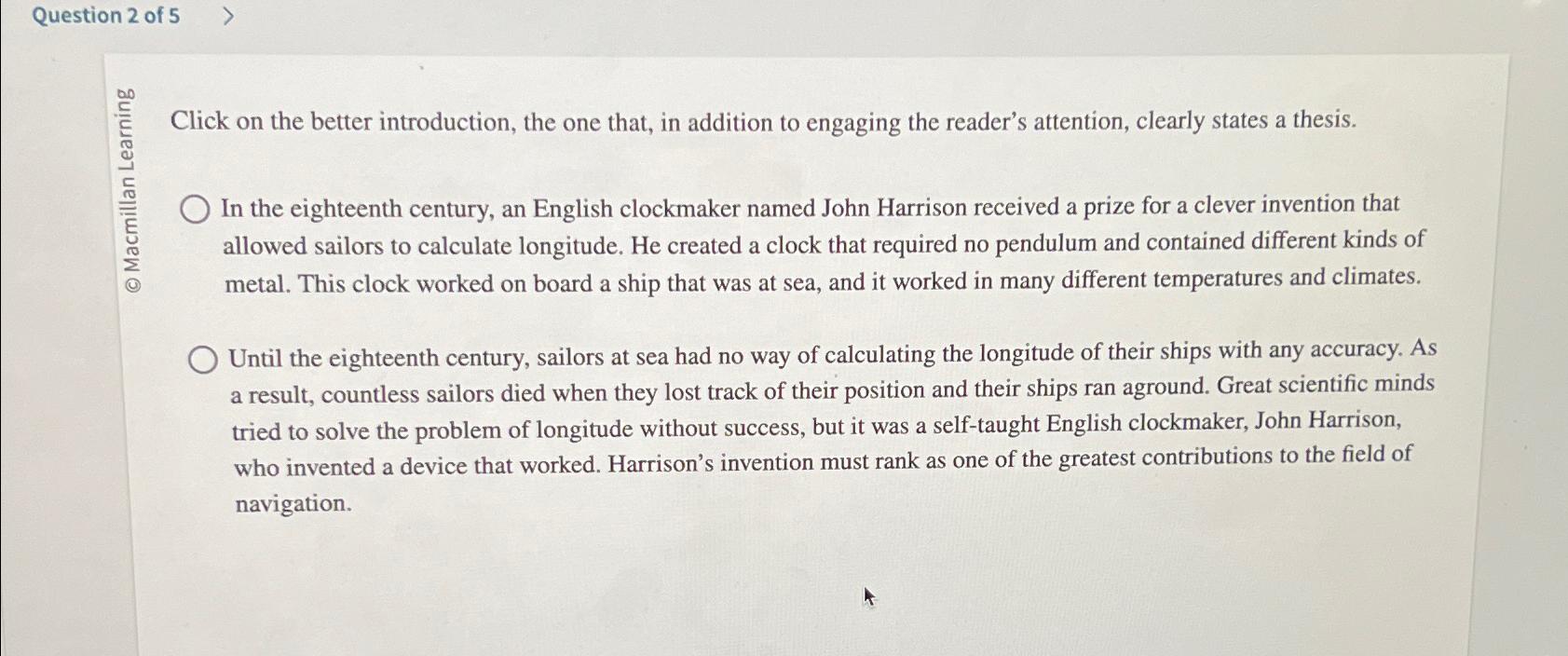Answered step by step
Verified Expert Solution
Question
1 Approved Answer
Question 2 of 5 Click on the better introduction, the one that, in addition to engaging the reader's attention, clearly states a thesis. In the
Question of
Click on the better introduction, the one that, in addition to engaging the reader's attention, clearly states a thesis.
In the eighteenth century, an English clockmaker named John Harrison received a prize for a clever invention that allowed sailors to calculate longitude. He created a clock that required no pendulum and contained different kinds of metal. This clock worked on board a ship that was at sea, and it worked in many different temperatures and climates.
Until the eighteenth century, sailors at sea had no way of calculating the longitude of their ships with any accuracy. As a result, countless sailors died when they lost track of their position and their ships ran aground. Great scientific minds tried to solve the problem of longitude without success, but it was a selftaught English clockmaker, John Harrison, who invented a device that worked. Harrison's invention must rank as one of the greatest contributions to the field of navigation.

Step by Step Solution
There are 3 Steps involved in it
Step: 1

Get Instant Access to Expert-Tailored Solutions
See step-by-step solutions with expert insights and AI powered tools for academic success
Step: 2

Step: 3

Ace Your Homework with AI
Get the answers you need in no time with our AI-driven, step-by-step assistance
Get Started


